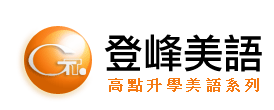文章分類
最新文章
熱門文章
|
|
|
| 字彙:金錢、經濟 Money & Economy | |
| 2016/1/4 | |
Many investors don’t realize that in this sluggish economy, currency exchange rates can adversely affect their investment portfolios. Corporations and industries that investors have stock in are converting large amounts of one currency into another every day. Exchange rates constantly affect the growth of the economy whether it’s booming or in a recession. They can also have a direct impact on company earnings, which can either help a struggling corporation to recover, or cause another to gain a deficit.
許多投資人不知道在不景氣的情況下,匯率很可能會對他們的投資組合產生不良影響。投資人持有股份的那些企業與產業每天都大量地將某種貨幣兌換成另一種貨幣。不論景氣是好還是壞,匯率都持續地影響著經濟的成長。匯率也可能對公司的盈利有直接影響,它們可能幫助某家陷入困境的公司脫困,也可能造成另一家公司的虧損。
1. sluggish【形】不景氣的;停滯的
*同義字包括depressed、stagnant、flat等。
2. currency【名】貨幣
*major currency「主要貨幣」包含dollar美元($)、euro歐元(€)、yen日圓(¥)及pound英鎊(£)。
3. exchange rates 匯率
4. investment【名】投資
*動詞為invest。investor(投資人)、stockholder = shareholder(股東)
5. portfolio【名】投資組合
*股票、債券、貴金屬、外幣存款等所持有投資商品的明細或整體概觀。stock portfolio(股票的投資組合)
6. industry【名】產業;工業
*同義字為trade或 field
7. stock【名】股票;存貨【及動;不及動】進貨;購入
*share與securities也可做為「股票」之意使用。另,securities house指「證券公司」,而「債券」則說成bond。
8. booming【形】景氣好的;(價錢、股市)暴漲的
*prosperous、thriving、buoyant等也是具同樣的意思。
9. recession 【名】 經濟衰退;不景氣
*recession被定義為GDP連續兩季呈現負成長狀態,而depression則是指更嚴重的「蕭條」。形容詞recessed指「衰退的」、「向內縮的」、「凹進去的」。
10. recover【不及動】恢復原狀;恢復健康
*名詞為recovery。而「景氣回升」動詞可用pick up表示。
11. deficit【名】赤字;虧損
*trade deficit(貿易赤字、貿易逆差)、budget deficit(財政赤字)。「盈餘」則可用surplus表示,而「貿易順差」稱為trade surplus或account surplus。
※更多豐富內容請參閱新多益字彙高分本領書,貝塔語言出版
|
|
| 文章分類:root | |
| 上一篇:經典文法 | |
| 下一篇:單篇閱讀 | |
